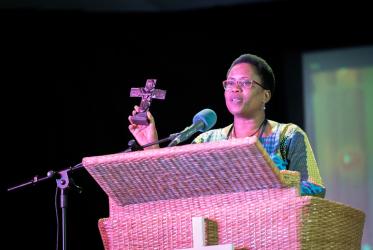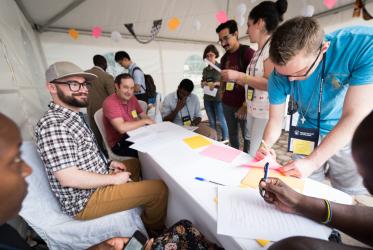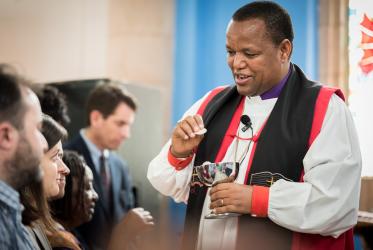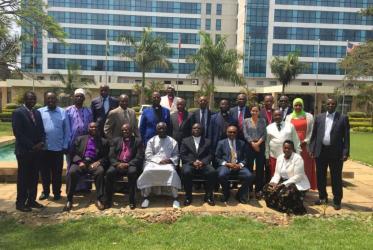Displaying 1 - 18 of 18
Young Africans are eager to grapple with challenges
09 January 2020
Diakonia: “a tool to reach abundance of life”
24 July 2018
“Sending service” closes Arusha conference
13 March 2018
‘Sokoni’ transforms marketplace into mission
13 March 2018
Arusha offers vibrant and colourful worship life
12 March 2018
Indigenous youth want their voices heard
08 March 2018
GETI students plant trees, in service for greener future
07 March 2018
Seven weeks of Lent highlight water justice in Latin America
12 February 2018
In Zambia, foreign investors complicate “economy of life”
06 September 2017
GEM School: integrating theology and economics
05 September 2017











